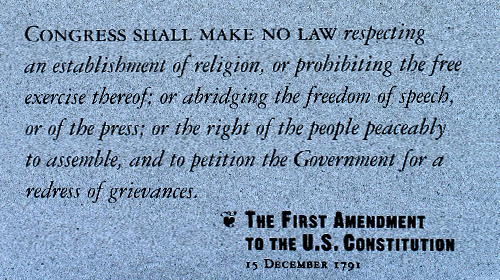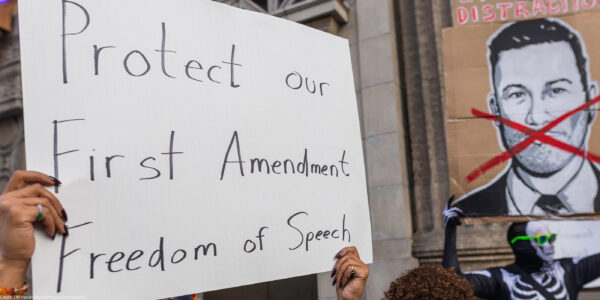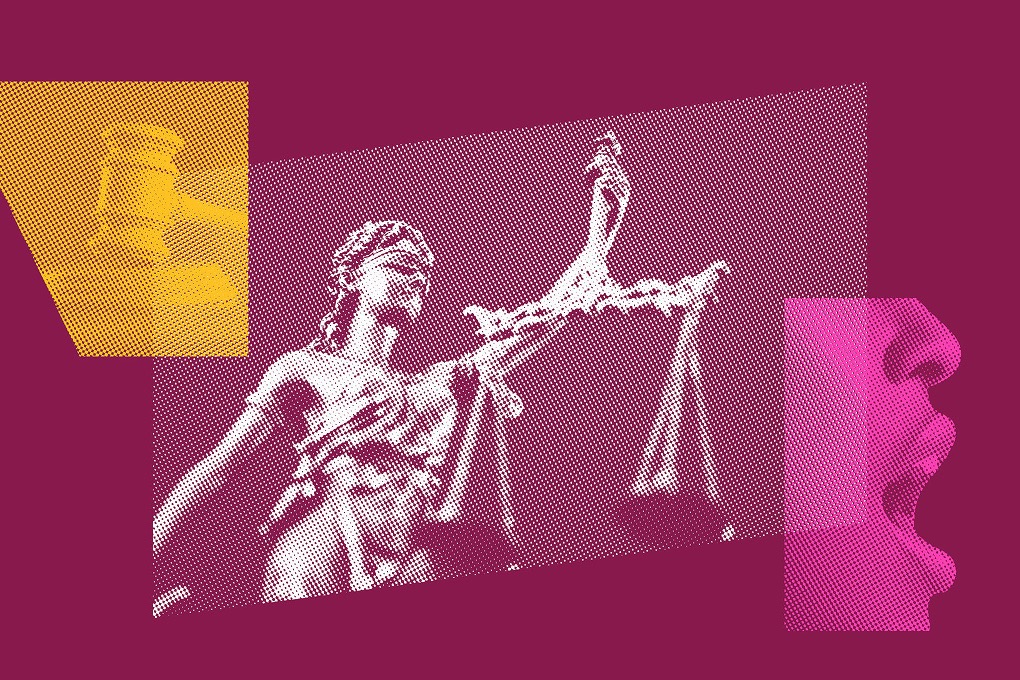
Political speech regulation remains an incredibly complex and contentious issue in our government, and there is plenty of legitimate concern about the recent influx of big, outside money in modern campaigns.
Those concerns, however, must be balanced against our crucial First Amendment rights to free speech and assembly. Hopefully we can all agree that any regulation to address "big money" must respect these values.
Late last year, the IRS proposed new political speech rules for certain nonprofits, which strike the wrong balance. Presumably an attempt to crack down on tax-exempt groups spending money to support or oppose candidates without disclosing their donors, the rules would likely do little to address that phenomenon and could seriously chill legitimate issue advocacy from nonprofits on the right and left, particularly smaller ones. We said as much in extensive comments submitted this week to the IRS.
Here's some background.
Although 501(c)(4) groups are meant to promote "social welfare" and community good, they can also engage in some partisan political activity so long as it's not their "primary" purpose. "Primary" is generally assumed to be 51 percent of their activities. So long as political activity is no more than 49 percent of their activities, 501(c)(4)s are exempt from taxation save only a few exceptions, including having to pay taxes on funds spent on those political activities.
While many see this exemption for groups engaged in partisan politicking as sinister, it also provides significant benefits for legitimate social welfare groups like the ACLU, which engages in extensive issue advocacy while completely forswearing any electioneering.
Unfortunately, under the also less-than-ideal current rules, the IRS has complete discretion to determine both what constitutes partisan activity, and how much such activity makes it a group's "primary" purpose. Historically, this kind of discretion has led to complications for issue advocacy groups, where communications critical of a sitting public official's position on a matter of public policy have been called "sham" issue ads. In the 1970s, for instance, the ACLU had to sue to run an ad in The New York Times critical of President Nixon's opposition to school desegregation.
And, it is that very discretion that led to what the IRS inspector general called the use of "inappropriate criteria" in the selection of groups for undue scrutiny late last year (note, importantly, that the IG didn't find any political motivation behind the scrutiny). So, for many moons now, this subjectivity has led tax practitioners and activists to ask the IRS to write a bright-line rule to clear up the confusion.
The proposed rules rightly lay out a bright-line, but one that cuts in exactly the wrong direction. They would now also count as partisan political activity a vast amount of public policy advocacy that has absolutely nothing to do with partisan politicking. In other words, under the proposed rules, the IRS could find that the primary purpose of totally nonpartisan groups is electioneering.
The new rules would, for instance, count as political activity any communication that simply mentions a candidate 60 days before an election or 30 days before a primary. Furthermore, any sharply worded communication that the IRS could construe as support or opposition to a candidate (e.g. "call Senator Doe and urge her to finally do the right thing on the deficit"), regardless of whether there's an election coming, would also count as political activity. The rules would also count against a group's permissible allotment of political activity completely nonpartisan voter education, registration, and mobilization efforts.
The proposed rules could pose a significant chilling effect on issue advocacy engaged in by many nonprofits. They would also disproportionately affect small, poor nonprofits that cannot afford the legal counsel to guarantee compliance with the new rules.
We fear that faced with such uncertainty, and needing to maintain their (c)(4) status, they would opt to just keep their mouths closed, so to speak. The rules also would fail to stop the groups they were meant to crack down on, as they would still be able to engage in a certain amount of actual partisan electioneering without disclosing their members.
The proposed rules thus create the worst of all worlds.
Learn more about the first amendment and other civil liberty issues: Sign up for breaking news alerts, follow us on Twitter, and like us on Facebook.


